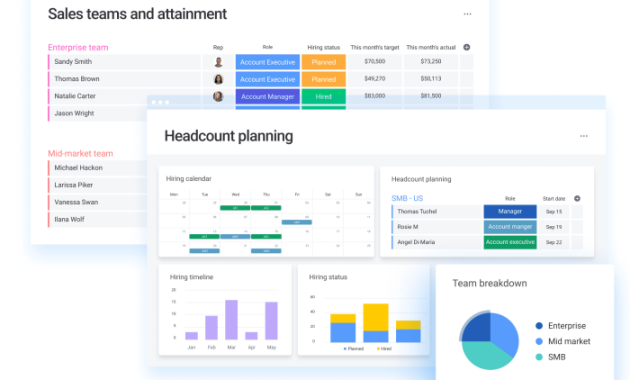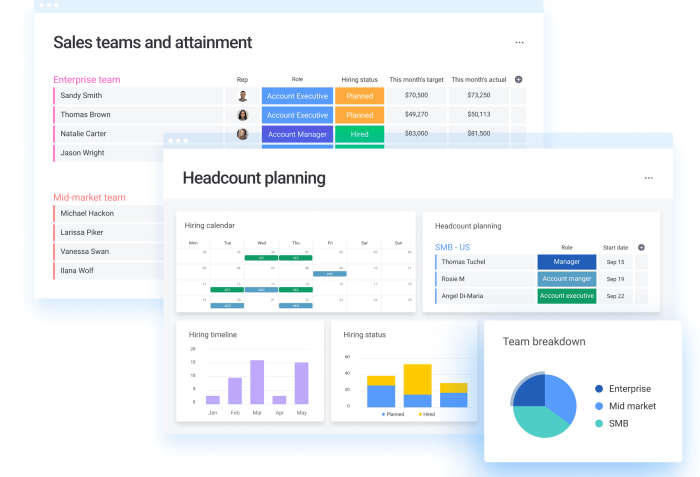
How to Unlock Sales with CRM Software: A Comprehensive Guide
In the competitive landscape of modern business, the ability to nurture customer relationships and streamline sales processes is paramount. This is where Customer Relationship Management (CRM) software steps in, offering a powerful suite of tools designed to enhance sales performance and drive revenue growth. This guide delves into the intricacies of how to unlock sales with CRM software, exploring its functionalities, benefits, and implementation strategies.
Understanding the Power of CRM Software
CRM software is more than just a contact management system; it is a strategic business tool. It centralizes customer data, providing a 360-degree view of each customer interaction. This comprehensive understanding empowers sales teams to personalize their approach, leading to increased engagement and higher conversion rates. CRM software helps businesses to organize and manage customer interactions, improving relationships and driving sales growth. The primary function of CRM is to manage and analyze customer interactions and data throughout the customer lifecycle. By using CRM, businesses can improve customer service, increase sales, and streamline marketing efforts.
Key Features of CRM Software for Sales Success
CRM software offers a wide range of features specifically designed to boost sales performance. These features work in tandem to create a cohesive and efficient sales process. Here are some of the most impactful:
- Contact Management: Centralized storage of customer information, including contact details, communication history, and purchase data. This ensures that all team members have access to the same information.
- Lead Management: Tools to track, nurture, and qualify leads, helping sales teams prioritize their efforts. This includes lead scoring, automated follow-ups, and lead source tracking.
- Sales Automation: Automation of repetitive tasks, such as email follow-ups, appointment scheduling, and data entry, freeing up sales representatives to focus on closing deals. This also includes automating the sales pipeline.
- Sales Pipeline Management: Visual representation of the sales process, allowing sales managers to monitor deals, identify bottlenecks, and forecast sales. This makes it easier to track the progress of deals and make informed decisions.
- Reporting and Analytics: Real-time dashboards and reports that provide insights into sales performance, allowing for data-driven decision-making. This allows sales teams to track key performance indicators (KPIs) and measure their progress.
- Integration Capabilities: Seamless integration with other business tools, such as email marketing platforms, accounting software, and social media channels, creating a unified workflow. This ensures that data is shared across different systems.
Benefits of Implementing CRM for Sales
The implementation of CRM software yields significant benefits for sales teams and the overall business. These benefits translate into tangible improvements in efficiency, productivity, and profitability.
- Increased Sales: By streamlining the sales process and improving customer engagement, CRM software directly contributes to higher sales figures. Improved lead management and effective sales automation result in more closed deals.
- Improved Customer Relationships: CRM allows businesses to personalize interactions and provide better customer service, leading to stronger customer relationships and increased loyalty. A better understanding of customer needs leads to improved customer satisfaction.
- Enhanced Sales Team Productivity: Automation and streamlined workflows free up sales representatives from administrative tasks, allowing them to focus on selling. CRM tools streamline workflows, reducing manual work.
- Better Data-Driven Decision Making: Real-time reporting and analytics provide valuable insights into sales performance, empowering managers to make informed decisions. This data-driven approach helps optimize sales strategies and tactics.
- Improved Lead Conversion Rates: Effective lead management features help identify and nurture high-potential leads, increasing the likelihood of conversion. Improved lead scoring and qualification processes lead to more efficient lead handling.
- Reduced Costs: Automation and efficiency gains can lead to reduced operational costs, contributing to improved profitability. Optimized processes reduce overheads and improve resource allocation.
Choosing the Right CRM Software
Selecting the right CRM software is crucial for achieving the desired results. The market offers a variety of options, each with its unique features and pricing models. Consider these factors when making your choice:
- Business Needs: Identify your specific sales processes, goals, and requirements. Choose a CRM that aligns with your business needs.
- Scalability: Select a CRM that can grow with your business. Ensure it can handle increasing data volumes and user numbers.
- User-Friendliness: Opt for a CRM with an intuitive interface and easy-to-use features to ensure user adoption. A user-friendly system minimizes the learning curve.
- Integration Capabilities: Ensure the CRM integrates with your existing business tools and systems. Seamless integration improves data flow.
- Pricing and Budget: Evaluate different pricing models and choose a CRM that fits within your budget. Consider all costs, including implementation, training, and ongoing maintenance.
- Vendor Reputation and Support: Research the vendor’s reputation and the level of customer support they offer. Reliable support ensures smooth operation and helps resolve issues quickly.
Implementing CRM Software: A Step-by-Step Guide
Successful CRM implementation requires a well-defined plan and a systematic approach. Here are the essential steps:
- Define Goals and Objectives: Clearly define what you want to achieve with CRM. Set specific, measurable, achievable, relevant, and time-bound (SMART) goals.
- Assess Current Processes: Analyze your existing sales processes and identify areas for improvement. Understand your current workflows to optimize the CRM implementation.
- Choose the Right CRM Software: Select the CRM solution that best meets your business needs. Consider all the factors mentioned above.
- Data Migration: Migrate your existing customer data into the CRM system. Ensure data accuracy and completeness.
- Customize the CRM: Configure the CRM to align with your specific sales processes and workflows. Customize fields, dashboards, and reports.
- Train Your Team: Provide comprehensive training to your sales team on how to use the CRM effectively. Ensure that all users understand the functionalities.
- Test and Refine: Test the CRM thoroughly and make any necessary adjustments. Gather feedback from users and continuously improve the system.
- Monitor and Evaluate: Monitor the performance of the CRM and evaluate its impact on sales performance. Track KPIs and measure the return on investment.
Maximizing Sales with CRM: Best Practices
To unlock the full potential of CRM software, businesses should adopt these best practices:
- Data Integrity: Maintain accurate and up-to-date customer data. Regularly clean and update your database.
- User Adoption: Encourage user adoption through training and support. Address any resistance to change.
- Process Automation: Automate repetitive tasks to free up sales representatives’ time. Automate lead nurturing sequences and follow-ups.
- Personalization: Use CRM data to personalize customer interactions. Tailor your messaging and offers to individual customer needs.
- Regular Reporting and Analysis: Regularly review sales reports and analytics to identify areas for improvement. Use data to optimize sales strategies.
- Continuous Improvement: Continuously evaluate and refine your CRM implementation. Stay up-to-date with the latest CRM features and best practices.
Real-World Examples of CRM Success
Numerous businesses have achieved remarkable sales growth and improved customer relationships by leveraging CRM software. These success stories highlight the transformative power of CRM.
Example 1: A mid-sized software company used CRM to streamline its lead management process. By implementing automated lead scoring and nurturing workflows, the company increased its lead conversion rate by 25% within six months. This improvement directly translated into a significant boost in sales revenue. The company also saw improvements in sales cycle efficiency.
Example 2: A retail chain implemented CRM to personalize customer interactions. By tracking customer purchase history and preferences, the company was able to tailor its marketing campaigns and offer targeted promotions. This resulted in a 15% increase in customer loyalty and a 10% increase in average order value. CRM helped to create more personalized customer experiences.
Example 3: A financial services firm used CRM to improve its sales team’s productivity. By automating tasks such as scheduling appointments and sending follow-up emails, the firm freed up its sales representatives to focus on closing deals. This led to a 20% increase in sales productivity and a reduction in sales cycle time. CRM helped sales representatives to focus on selling.
Overcoming Challenges in CRM Implementation
While CRM software offers significant benefits, businesses may encounter challenges during implementation. Addressing these challenges proactively is crucial for ensuring success.
- Resistance to Change: Some employees may resist adopting new technologies or changing their established workflows. Provide adequate training and support to address this issue.
- Data Migration Issues: Migrating existing data into a new CRM system can be complex and time-consuming. Ensure data accuracy and completeness during the migration process.
- Lack of User Adoption: If employees do not use the CRM effectively, the system will not deliver its full potential. Encourage user adoption through training and support.
- Integration Challenges: Integrating CRM with other business systems can be technically challenging. Choose a CRM with strong integration capabilities and seek professional help if needed.
- Cost Overruns: CRM implementation can be expensive. Create a realistic budget and carefully manage costs throughout the process.
The Future of Sales and CRM
The integration of CRM with emerging technologies is shaping the future of sales. Artificial intelligence (AI), machine learning (ML), and advanced analytics are playing an increasingly important role. These technologies will further enhance sales processes and improve customer experiences.
- AI-Powered Sales Assistants: AI-powered assistants can automate tasks, provide real-time insights, and help sales teams make data-driven decisions. These assistants can analyze customer data and provide personalized recommendations.
- Predictive Analytics: Predictive analytics can forecast sales trends, identify potential leads, and optimize sales strategies. These tools can help businesses anticipate customer needs and trends.
- Personalized Customer Experiences: CRM will continue to enable businesses to deliver highly personalized customer experiences. Tailored interactions will become increasingly common.
- Mobile CRM: Mobile CRM solutions will become even more prevalent, allowing sales teams to access CRM data and manage their activities on the go. Mobile access improves the sales process.
As technology advances, the role of CRM in driving sales success will only become more critical. Businesses that embrace CRM and leverage its capabilities will be well-positioned to thrive in the competitive market. Understanding how to unlock sales with CRM software is vital for sustainable business growth. CRM is a powerful tool to improve sales and customer relationships.
Conclusion: The Key to Sales Growth
In conclusion, CRM software is an indispensable tool for businesses seeking to unlock sales potential and build lasting customer relationships. By centralizing customer data, automating sales processes, and providing valuable insights, CRM empowers sales teams to work smarter, not harder. From lead management to sales pipeline optimization, the capabilities of CRM are vast and impactful. Implementing the right CRM, adopting best practices, and embracing continuous improvement are key to realizing its full benefits. As technology continues to evolve, CRM will remain at the forefront of sales innovation, driving efficiency, productivity, and ultimately, revenue growth. The implementation of CRM software is an investment, but the return on investment is significant.
[See also: Best CRM Software for Small Businesses, Sales Automation Techniques, Lead Generation Strategies]

